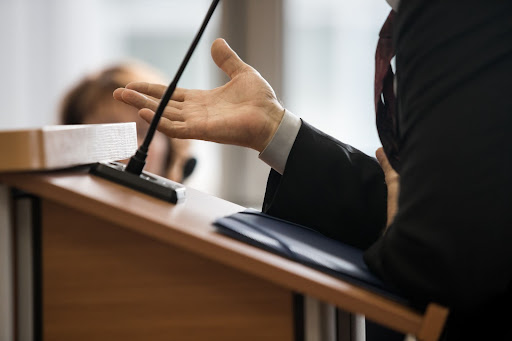
In personal injury lawsuits, the parties use legal tools to gather the information they need for their case—this is called discovery. A deposition is a method of discovery used to obtain a person’s sworn testimony outside of court.
Depositions can be used to gather information about what claims and arguments the defendant will be making, to find weak points of their argument, and to learn what additional evidence your attorney might want to support your case.
Although many personal injury claims settle without going to trial, depositions often promote settlement negotiations because both parties are given a clearer picture of the positions that would be presented in court.
For example, your attorney might uncover information that the defendant doesn’t want public, making them more inclined to make a reasonable settlement offer.

Personal injury process post-deposition
Several steps come after deposition, all of which can be pivotal parts in your personal injury case.
Review deposition transcripts
The deponent will have an opportunity to review their deposition transcript for accuracy and make any changes, corrections, or clarifications that they feel are necessary. Each party may then obtain a copy of the deposition transcript for their own review and records.
Your lawyer will review all deposition transcripts to look for facts that substantiate your claim and to find inconsistencies between statements made in verified court documents, in other discovery responses, or inconsistencies between witnesses.
Discovery
Discovery encompasses gathering all facts and evidence for a personal injury trial. This can include written questions, seeking the production of documents or things such as reports or video footage, or issuing subpoenas for the production of records or things.
Discovery can be done at any stage of the case up until the discovery cutoff. Sometimes a deposition will raise new issues or questions for which your attorney will want to issue more discovery so that you have a complete picture of the case before leading into settlement negotiations or going to trial.
Settlement negotiations
Settlement negotiations can occur at any time. Often, both parties participate in mediation, either by agreement or as ordered by the judge. Mediation is a formal negotiation process aided by a neutral third party with the goal of helping the parties settle the case in a manner that both parties agree is fair.
Pretrial conference
A pretrial conference is heard by the judge of your case and may consist of last-minute motions such as motions to exclude evidence, or to discuss the proposed jury instructions. The case is ready to proceed to trial after the pretrial conference.
Trial
If your case goes to trial, the depositions will be critical evidence for your case. Often, the same witnesses deposed during discovery will also be questioned in the trial. Your lawyer may use the deposition transcripts to raise doubt about the defendant’s testimony or that of their witnesses due to inconsistencies.
After both sides have presented their evidence and testimony, the jury will deliberate and inform the court of their decision. The judge will then issue orders based on the jury’s verdict consistent with Missouri law.
Appeal
Missouri law permits either party to appeal a decision in a personal injury trial. If a party feels the need to re-depose a witness to perpetuate their testimony for future hearings in the circuit court, they must ask the court for permission to conduct those depositions and must state a good cause for why their request should be granted.
Do you need legal advice after being injured in an accident?
If you’ve been hurt and believe you have cause to seek compensatory damages, a skilled St. Louis personal injury lawyer with Langdon & Emison can help you learn more about your legal options. Contact us today at (866) 931-2115 for a complimentary initial consultation.

